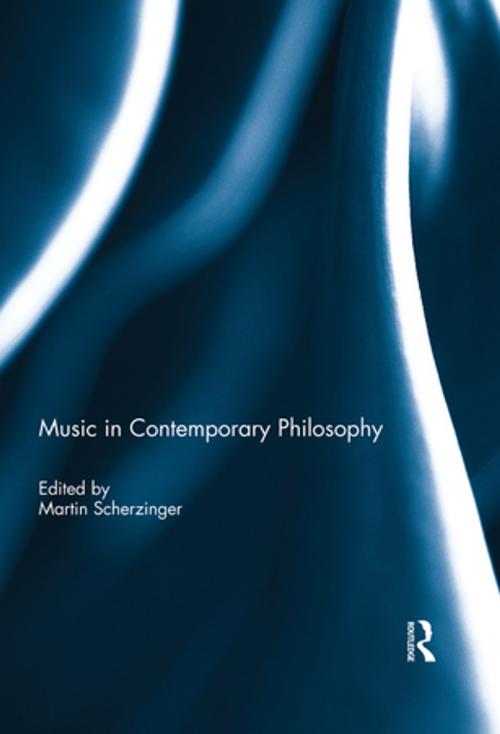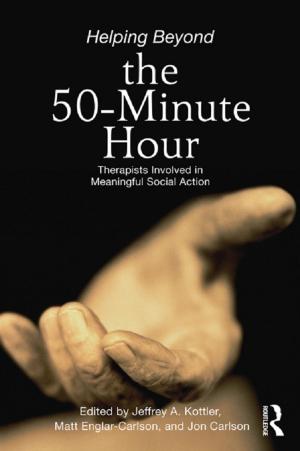Music in Contemporary Philosophy
Nonfiction, Entertainment, Music, Social & Cultural Studies, Social Science| Author: | ISBN: | 9781317643968 | |
| Publisher: | Taylor and Francis | Publication: | January 8, 2016 |
| Imprint: | Routledge | Language: | English |
| Author: | |
| ISBN: | 9781317643968 |
| Publisher: | Taylor and Francis |
| Publication: | January 8, 2016 |
| Imprint: | Routledge |
| Language: | English |
This book examines the functional place of music in contemporary European philosophy of the 20th and 21st centuries. The chapters explore the musical dimensions of lesser known figures as well as well-known philosophical figures in relation to their lesser-known musical dimensions. Edmund Husserl, Martin Heidegger, Jean-François Lyotard, Jacques Rancière and Alain Badiou, for example, are central figures in debates concerning phenomenology, postmodernism and political philosophy. Their musical writings, however, have been largely overlooked. Of those discussed here whose musical writings have gained some currency – Ernst Bloch, Theodor W. Adorno, Jean-Luc Nancy, Edward Said, and Slavoj Žižek – music mostly constitutes but a partial aspect of their overall philosophical output. These chapters attempt to supplement the gap, raising more prominently than hitherto the question concerning music in this philosophical milieu.
The collection represents some of the distinctive recent work of an emerging generation of American-based music scholars tackling the relationship between philosophy and music in a qualitatively new way. While this intellectual output cannot be easily summarized, one detects certain features. If what was once called "New Musicology" in the 1990s can be characterized by a turn to literary theory and philosophy – treated as sources of (mostly nonjudgmental) inspiration – we find here, instead, a new body of work that turns the tables on the relation between music and philosophy. Instead of bringing philosophy to musicology, this work critically analyzes how music inhabits philosophy itself, and then assesses the ethical and political dimensions of these philosophical positions and their relation to lived history.
This book was originally published as a special issue of Contemporary Music Review.
This book examines the functional place of music in contemporary European philosophy of the 20th and 21st centuries. The chapters explore the musical dimensions of lesser known figures as well as well-known philosophical figures in relation to their lesser-known musical dimensions. Edmund Husserl, Martin Heidegger, Jean-François Lyotard, Jacques Rancière and Alain Badiou, for example, are central figures in debates concerning phenomenology, postmodernism and political philosophy. Their musical writings, however, have been largely overlooked. Of those discussed here whose musical writings have gained some currency – Ernst Bloch, Theodor W. Adorno, Jean-Luc Nancy, Edward Said, and Slavoj Žižek – music mostly constitutes but a partial aspect of their overall philosophical output. These chapters attempt to supplement the gap, raising more prominently than hitherto the question concerning music in this philosophical milieu.
The collection represents some of the distinctive recent work of an emerging generation of American-based music scholars tackling the relationship between philosophy and music in a qualitatively new way. While this intellectual output cannot be easily summarized, one detects certain features. If what was once called "New Musicology" in the 1990s can be characterized by a turn to literary theory and philosophy – treated as sources of (mostly nonjudgmental) inspiration – we find here, instead, a new body of work that turns the tables on the relation between music and philosophy. Instead of bringing philosophy to musicology, this work critically analyzes how music inhabits philosophy itself, and then assesses the ethical and political dimensions of these philosophical positions and their relation to lived history.
This book was originally published as a special issue of Contemporary Music Review.















